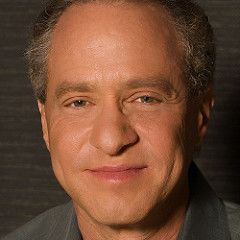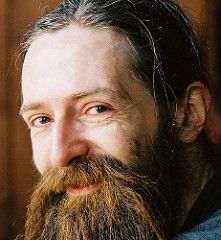I’m working on this project with Institute for the Future — calling on voices everywhere for ideas to improve the future of global health. It would be great to get some visionary Lifeboat ideas entered!
INSTITUTE FOR THE FUTURE ANNOUNCES BODYSHOCK:
CALL FOR ENTRIES ON IDEAS TO TRANSFORM LIFESTYLES AND THE HUMAN BODY TO IMPROVE HEALTH IN THE NEXT DECADE
“What can YOU envision to improve and reinvent health and well-being for the future?” Anyone can enter, anyone can vote, anyone can change the future of global health.
With obesity, diabetes, and chronic disease rampaging populations around the world, Institute for the Future (IFTF) is turning up the volume on global well-being. Launching today, IFTF’s BodyShock is the first annual competition with an urgent challenge to recruit crowdsourced designs and solutions for better health–to remake the future by rebooting the present.
BodyShock calls upon the public to consider innovative ways to improve individual and collective health over the next 3–10 years by transforming our bodies and lifestyles. Video or graphical entries illustrating new ideas, designs, products, technologies, and concepts, will be accepted from people around the world until September 1, 2010. Up to five winners will be flown to Palo Alto, California on October 8 to present their ideas and be connected to other innovative thinkers to help bring these ideas to life. The grand prize winner will receive the IFTF Roy Amara Prize of $3,000.
“Health doesn’t happen all at once; it’s a consequence of years of choices for our bodies and lifestyles–some large and some small. BodyShock is intended to spark new ideas to help us find our way back to health,” said Thomas Goetz, executive editor of Wired, author of The Decision Tree, and a member of the Health Advisory Board that will be judging the BodyShock contest in addition to votes from the public.
“BodyShock is a fantastic initiative. Global collaboration and participation from all voices can produce a true revolution,” said Linda Avey, founder of Brainstorm Research Foundation and another Advisor to BodyShock.
Entries may come from anyone anywhere and can include, but are not limited to, the following: Life extension, DIY Bio, Diabetic teenagers, Developing countries, Green health, Augmented reality, Self-tracking, and Pervasive games. Participants are challenged to use IFTF’s Health Horizons forecasts for the next decade of health and health care as inspiration, and design a solution for a problem that will be widespread in 3–10 years, using technologies that will become mainstream.
“Think ‘artifacts from the future’–simple, non-obvious, high-impact solutions that don’t exist yet, will be among the concepts we’re looking to the public to introduce,” said Rod Falcon, director of the Health Horizons Program at IFTF.
BodyShock’s grand prize, the Roy Amara Prize, is named for IFTF’s long-time president Roy Amara (1925−2000) and is part of a larger program of social impact projects at IFTF honoring his legacy, known as The Roy Amara Fund for Participatory Foresight, the Fund uses participatory tools to translate foresight research into concrete actions that address future social challenges.
PANEL OF COMPETITION JUDGES
Joanne Andreadis
Lead of Innovation, Centers for Disease Control and Prevention
Linda Avey
Founder, Brainstorm Research Foundation
Jason Bobe
Director of Community, Personal Genome Project
Founder, DIYBio.org
Alexandra Carmichael
Co-founder, CureTogether
Director, Quantified Self
Ted Eytan, MD
Kaiser Permanente, The Permanente Federation
Rod Falcon
Director, Health Horizons Program
Peter Friess
President, Tech Museum of Innovation
Thomas Goetz
Executive Editor, WIRED Magazine
Author, The Decision Tree
Natalie Hodge,MD FAAP
Chief Health Officer, Personal Medicine International
Ellen Marram
Board of Trustees, Institute for the Future
President, Barnegat Group LLC
Kristi Miller Durazo
Senior Strategy Advisor, American Heart Association
David Rosenman
Director, Innovation Curriculum
Center for Innovation at Mayo Clinic
Amy Tenderich
Board Member, Journal of Participatory Medicine
Blogger, DiabetesMine.com
DETAILS
WHAT:
An online competition for visual design ideas to improve global health over the next 3–10 years by transforming our bodies and lifestyles. Anyone can enter, anyone can vote, anyone can change the future of health.
WHEN:
Launch — Friday, June 18,2010
Deadline for entries –Wednesday, September 1, 2010
Winners announced –Thursday, September 23, 2010
BodyShock Winners Celebration at IFTF — 6 — 9 p.m. Friday, October 8, 2010 — FREE and open to the public
WHERE:
http://www.bodyshockthefuture.org
(and 124 University Ave, 2ndFloor, Palo Alto, CA)


 The summer 2010 “
The summer 2010 “ Also speaking at the H+ Summit @ Harvard is
Also speaking at the H+ Summit @ Harvard is 